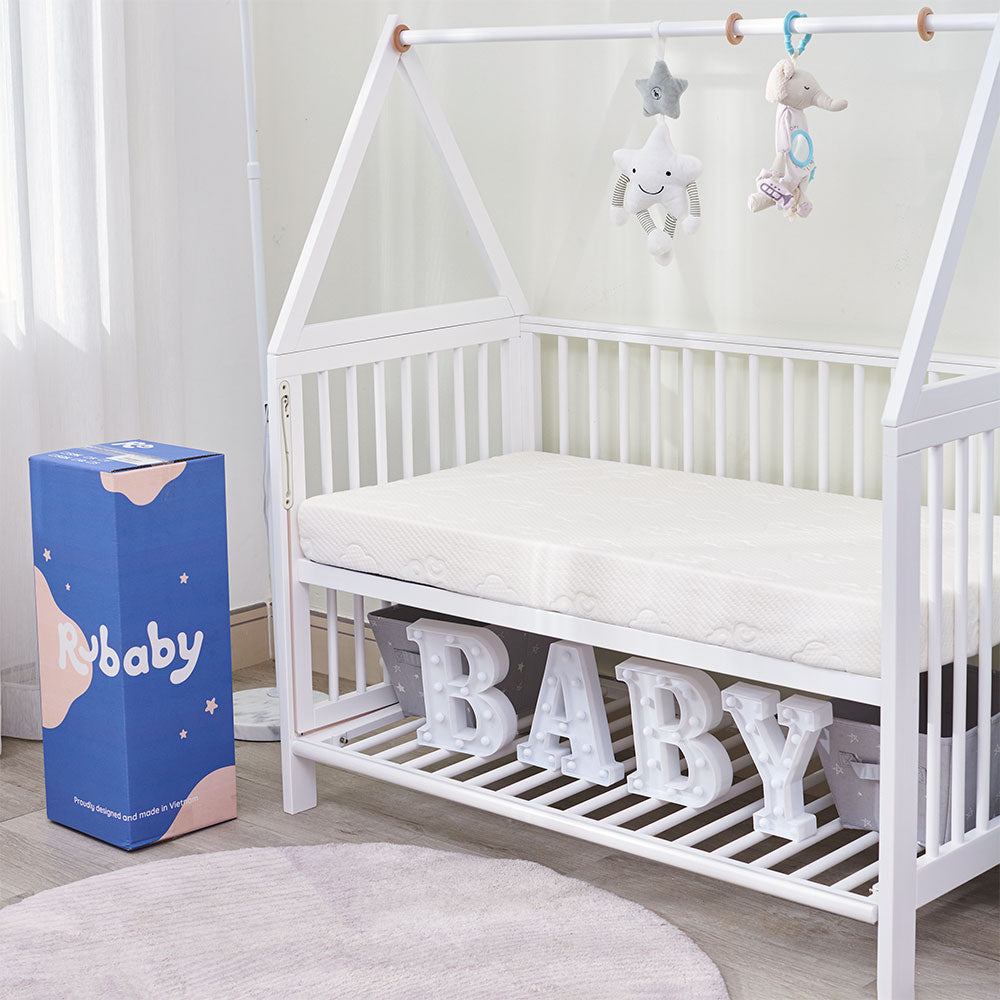There are sleeps that are said to be affected by a supernatural force or phenomenon, creating the feeling that someone is pressing on you, making it difficult to breathe and making you extremely confused. This is not actually a spiritual thing but rather due to sleep paralysis, or more commonly known as "sleep paralysis". The phenomenon of sleep paralysis when napping in particular and in sleep in general are the things that make us feel the most uncomfortable.
If you or a loved one has experienced sleep paralysis while napping, don't worry. Read through the article below to gain knowledge about sleep paralysis from a scientific perspective.
1. What is sleep paralysis?
Sleep paralysis is a temporary inability to move that occurs shortly after falling asleep or waking up. You may still have awareness, but not be able to move, and feel pressure and suffocation. This phenomenon usually occurs when sleep is transitioning between the wakefulness and sleep phases.

Sleep paralysis during naps and at night is thought to be a supernatural phenomenon.
Many popular beliefs still believe that sleep paralysis is a supernatural and mystical phenomenon. However, experts have come up with a clear scientific explanation for this fairly common phenomenon from the stages of sleep. Scientifically explained, the phenomenon of sleep paralysis is called sleep paralysis. This is a condition defined by a brief loss of muscle control, known as atonia . In addition, people often experience hallucinations during periods of sleep paralysis.
Sleep paralysis is one of the abnormal behaviors during sleep. Because it is connected to the rapid eye movement (REM) phase of the sleep cycle, sleep paralysis is considered a 'parasomnia REM'.
Researchers believe that sleep paralysis involves a mixed state of consciousness, which is a mix of both wakefulness and REM sleep.
2. Sleep paralysis phenomenon
As explained above, sleep paralysis does not distinguish between napping or sleeping at night. But sleep paralysis during naps may be more common because naps are usually shorter and more difficult to fall asleep at night. This makes it easier to blend sleep and wakefulness at this point.
Besides, people who have little habit of napping but sometimes take a short nap because they are too tired, sleeping to make up for the nights of continuous work is also the cause of the phenomenon of sleep paralysis when napping. . However, no matter what session you have sleep paralysis, you will experience similar symptoms, causing uncomfortable and uncomfortable feelings.
3. Feelings of sleep paralysis

Hallucinations are one of the conditions of sleep paralysis.
The phenomenon of sleep paralysis when napping will also experience the same sensations as when being sleep deprived at night. They will make you feel extremely uncomfortable and irritable because you cannot react to anything. Specifically, the effects of sleep paralysis when napping are:
- Inability to move the body during sleep or upon awakening, lasting for a few seconds or minutes. No matter how much you want to sit up or change positions, you've lost control of your muscles. This is one of the most common feelings experienced by people with sleep paralysis.
- Awake but unable to speak. At this point, you will become like a mute person, unable to make a sound to call for help from family members.
- There are hallucinations and feelings of fear. Sleep paralysis also causes hallucinations through nightmares or delusions. This is one of the reasons people say that sleep paralysis is caused by a supernatural, paranormal phenomenon. But science has proven that hallucinations are just one of the symptoms when you have sleep paralysis. When you have this problem, you will easily sweat a lot and become headache.
- Feel pressure on your chest like someone is pressing on you. This is exactly why sleep paralysis is popularly known as "sleep paralysis". Even though there's no one else but you, it feels like someone so heavy is pressing down on you that you feel suffocated like death is approaching.
4. Who can get sleep paralysis?
It is often assumed that only the weak will experience sleep paralysis. However, based on the survey, about 4 out of 10 people are likely to have sleep paralysis.

Anyone can experience sleep paralysis while napping.
This common condition usually first occurs during the teen years, between the ages of 14 and 17. But men and women of all ages can have it. Sleep paralysis can run in families.
As such, anyone can experience sleep paralysis while napping or at night.
5. Causes of sleep paralysis
The exact cause of sleep paralysis is unknown. Studies have examined data to see what is associated with a higher risk of sleep paralysis and have found mixed results.

Causes of sleep paralysis during afternoon nap.
Based on that study, researchers believe that many factors contribute to sleep paralysis including:
- Other sleep problems such as narcolepsy: This is one of the reasons that account for a high percentage of 38%, through studies . People with Obstructive Sleep Apnea (OSA) - a repetitive sleep disorder in breathing - often have higher sleep paralysis. Sleep paralysis has also been found to be more common in people with nighttime leg cramps.
- Sleep deprivation or constantly changing sleep schedules: Insomnia symptoms such as difficulty falling asleep and excessive daytime sleepiness have been found to be associated with sleep paralysis. Therefore, sleep paralysis during naps is more likely to occur for someone who chooses to nap to make up for previous sleepless nights.
- Circadian rhythm disturbances: When you do not have a fixed sleep time, circadian rhythms become disordered and this also facilitates sleep paralysis.
- Mental conditions such as stress or bipolar disorder: When your mental health is not good, creating anxiety, panic continuously for a long time will be more likely to experience sleep paralysis. Certain conditions, such as post-traumatic stress disorder, or having an unhappy childhood or being exposed to constant violence, can also cause sleep paralysis.
6. Is sleep paralysis a serious problem?
For most people, sleep paralysis is not a serious problem. It is classified as a benign condition and does not usually occur often enough to cause significant health problems.
However, an estimated 10% of people have recurrent or more bothersome episodes that make sleep paralysis particularly distressing. As a result, they may develop negative thoughts about going to bed, reduce the time allotted to sleep, or cause anxiety around bedtime that makes it harder to fall asleep. The phenomenon of sleep paralysis when napping also makes you skeptical about napping, thereby not daring to nap anymore and can lead to sleep deprivation. Lack of sleep can lead to excessive sleepiness and many other consequences for a person's overall health.
7. Solutions to reduce sleep paralysis
There are many ways to minimize sleep paralysis during naps and evenings. The first step in treatment is to talk to your doctor to identify and address underlying problems that may be contributing to the frequency or severity of episodes. When you listen to scientific advice from your doctor, you will better understand your condition and can adjust your life habits for the better.

Solution to get rid of sleep paralysis when napping.
Because of the link between sleep paralysis and sleep problems in general, improving sleep hygiene is a common focus in preventing sleep paralysis. Sleep hygiene is the setting of one's bedroom and daily habits that affect sleep quality.
Here are some healthy sleep tips that can contribute to better sleep hygiene and more consistent nightly rest including:
- Follow the same schedule for going to bed and waking up every day, even on weekends. This helps your biological clock to stay in tune, thus helping you sleep more scientifically.
- Keeping a bedtime routine helps you feel relaxed. Relaxing yourself, putting your mind at ease will help you fall asleep easily and not have nightmares.
- Outfit your bed with the best mattress and pillow for your needs. This will be one of the components that directly affect the quality of your sleep. Choose the right mattress and pillow for yourself so that your body is always comfortable when sleeping and does not feel pain after waking up every morning.
- Reduce alcohol and caffeine consumption, especially in the evening. These stimulants will cause the brain to become excited and thereby can create illusions. It is necessary to limit their use for a really good and peaceful sleep.
- Put away electronic devices, including cell phones, for at least half an hour before bedtime. Light from electronic devices has been shown to suppress the production of melatonin in the brain, affecting our sleep.
Several medications are known to block REM sleep, and these can help prevent sleep paralysis. However, these drugs can have side effects and can cause a rebound in REM sleep when someone stops taking them. For these reasons, it's important to talk to your doctor before taking any medication to know the benefits and drawbacks of the medication.
Summary:
Sleep paralysis in particular and during sleep in general is a completely normal problem that can happen to anyone. If you are unlucky enough to experience this situation, quickly regain your composure and try to create healthy sleep habits so that you do not have to experience this condition again. If the frequency of sleep paralysis occurs continuously, quickly contact your doctor for the best solution.


















































